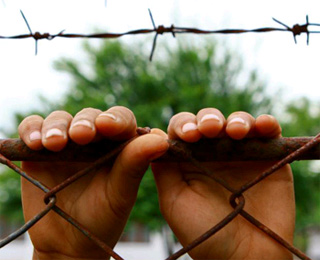
Abu Dhabi, April 15: The United Nations Special Rapporteur on trafficking in persons, especially women and children, Joy Ngozi Ezeilo, has commended the UAE experiment in combating trafficking in persons. She lauded the UAE as a ‘model’ in fighting crimes of human trafficking and hoped the UAE would further develop such preventive mechanisms to put an end to these crimes.
The UN expert made her remarks during discussion today with Major General Khalifa Hareb Al Khaili, Assistant Undersecretary of Ministry of Interior (MoI) for Resources and Support Services, on ways of enhancing channels of cooperation and coordination with the UN Human Rights Council for combating human trafficking crimes.
Later, Brigadier Ahmed Mohammed Nakhira, Director of Human Rights Department at MoI, and Head of Committee to Combat Human Trafficking, held a meeting with the United Nations Special Rapporteur on trafficking in persons, especially women and children, Joy Ngozi Ezeilo, who is undertaking her first official country visit to the UAE to examine the situation of trafficked individuals and the impact of anti-trafficking measures in the country.
The UN official said the UAE was making tremendous and sustained efforts to fight crimes related to human trafficking. These anti-human trafficking measures, she indicated, had evoked appreciation and praise from the international community and human rights organisations.
She noted that the MoI had rolled out several initiatives at local, regional and international levels to combat trafficking in persons and support victims.
The meeting reviewed MoI’s policies and initiatives to fight crimes of human trafficking and UAE’s role in advocating and upholding human rights in implementation of international conventions and recommendations put forward by the Universal Periodic Review on human rights in 2008.
The UN official watched a presentation on the MoI’s anti-human trafficking strategy.
UN expert on trafficking in persons said the meeting was constructive and demonstrates the close cooperation between the UAE and international anti-human trafficking organisations.






.jpg)
.jpg)
Comments
Add new comment